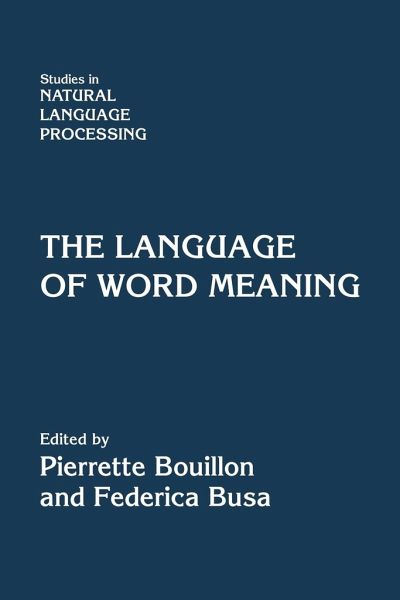
The Language of Word Meaning
Versandkostenfrei!
Versandfertig in 1-2 Wochen
55,99 €
inkl. MwSt.

PAYBACK Punkte
28 °P sammeln!
This collection of contributions addresses the problem of words and their meaning.


Rechnungen
Bestellstatus
Retourenschein
Storno